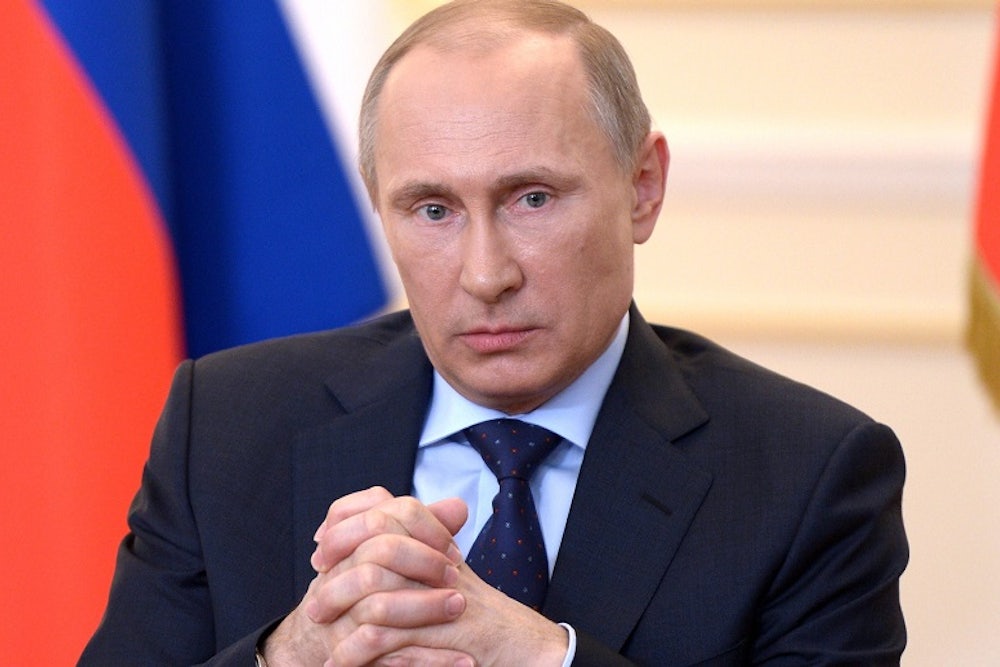As the United States and Europe prepare to impose tougher sanctions on Russia, it’s worth remembering just how dependent that country is on energy exports. This is a double-edged sword: The dependence gives the world significant leverage to inflict economic damage on the Kremlin, but Europe’s reliance on Russian energy exports puts their economies at risk if they follow through on that threat.
Consider: In 2013, the United States exported more than $1.5 trillion of goods. Of those, just $137 billion were either crude oil or petroleum products. (Due to the Energy Department's slow approval process, the U.S. has a de facto ban on natural gas exports.) In Russia, on the other hand, the export of crude oil, petroleum products, and natural gas made up more than two-thirds of their total exports:

Oil and gas revenues make up more than 50 percent of the Russian government’s total revenue, most of it coming from Europe. If the Eurozone nations decided to reduce or end their purchases of Russian oil and natural gas, it would leave a massive hole in the nation’s budget.
But that’s unlikely to happen. On Tuesday, the New York Times reported that the Netherlands, which lost 193 citizens in the Malaysia Airlines Flight 17 tragedy, is reluctant to impose strict sanctions against Russia out of fears over the economic consequences. “Shell, the Anglo-Dutch oil giant, which has its head office in The Hague, is one of the largest foreign investors in Russian gas fields in Siberia,” the story said. “Shell is the largest corporation in the Netherlands, and its stock is widely held in the nation’s pension funds. If Shell loses money, the pensions of Dutch teachers, civil servants and many others suffer.”
It’s not that Europe doesn’t have the tools to materially damage Russia. It’s that it effectively can’t use them.
